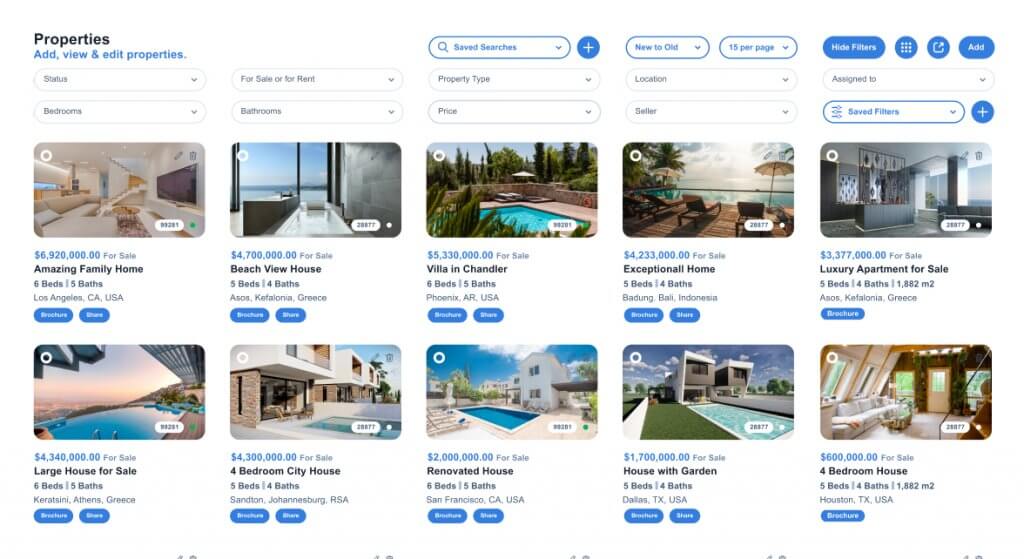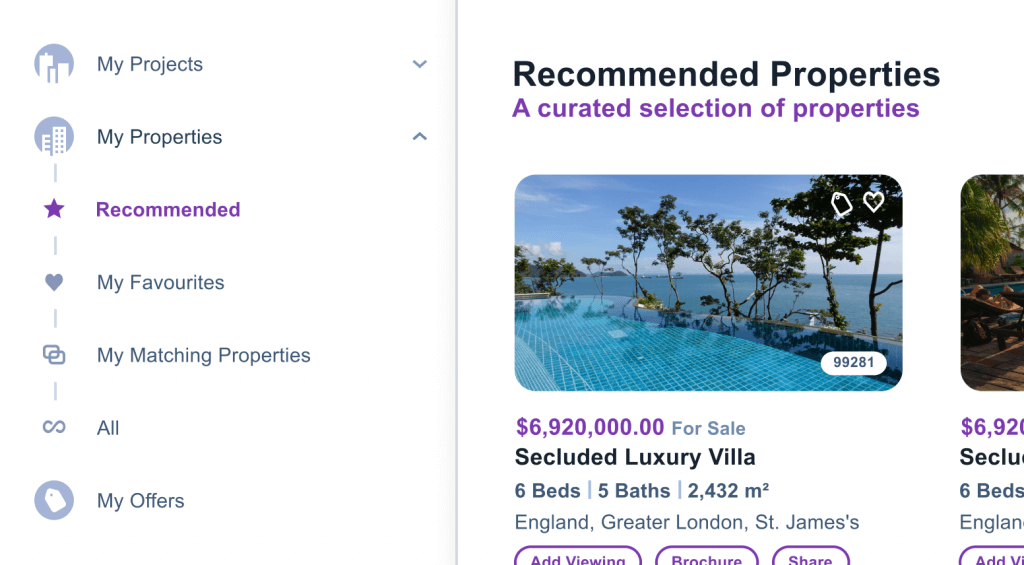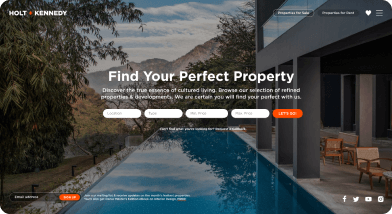Lead generation is the process of attracting consumer interest in your particular product or service and then converting those consumers into buying customers. Frequently used online lead generating channels include social media, website, emails, digital advertising, influencer marketing, etc. In this article, we’ll look at lead generation in real estate in more detail.
What is lead generation in real estate?
Lead generation in real estate is a critical sales activity. As the industry has evolved through digitalization and the integration of technology solutions, so too have lead generation techniques. How we reach prospective homebuyers has also changed because of the way people search for real estate and make purchasing decisions.
According to a 2019 report by the National Association of Realtors:
- 98% of older millennials search on online websites compared to 89% of older boomers and 72% of the silent generation
- 98% of older millennials cited using the internet, whereas only 72% did from the silent generation
- 81% of older millennials, 80% of younger millennials and 78% of generation X found their home on a mobile device compared to 68% of younger boomers.
- 76% of all buyers found home on a mobile device
- 17% of all buyers found agent with mobile device
So how does this impact lead generation techniques used by real estate professionals? Let’s find out.
Social Media marketing – a great source of real estate leads who already follow you
Online adults aged 18-34 are most likely follow a brand via social networking (95%). (Source: MarketingSherpa)
Buyers across demographics have shifted to looking for properties online. Many are looking to social media platforms. This has had an impact on lead generation in real estate. As a result, social media has become an integral component of most real estate marketing strategies today. Each platform also attracts different audiences and must be leveraged accordingly to engage the right consumers effectively.
68% of consumers want to see posts that include images. 50% want to see engage with video content. 30% prefer text-based posts whereas 26% prefer stories. (Source: SproutSocial)
The type of content which consumers want to engage with varies. Each social media channel offers the opportunity to serve the content your audience wants to see. For e.g., make use of high-quality images to showcase your listings, create videos for virtual viewings, go live with stories for real-time engagement. Your goal is to be seen and to make an impact.
What makes a brand social best-in-class? 45% of consumers say it’s because of transparency. 33% says it’s because of the brand’s distinct personality, and 21% due to the brand setting trends. (Source: SproutSocial)
To succeed on social media, create a unique online personality that consumers immediately associate with your brand. Constantly look for ways to stay top of mind by monitoring and adapting to current social media trends. Be authentic and true to your brand identity. Transparency is key.
WEB optimisation – an organic source of real estate leads if done right and consistently
82% of people who implemented an SEO strategy found it to be effective. (Source: Safari Digital)
Your real estate website must be SEO optimized for consumers to be able to find it online. There are several ways to do this. The site must be mobile friendly. It must serve engaging, high-quality content that incorporates important keyword best practices. Content must be varied (blogs, videos, tutorials, infographics, etc.), informative, and give value.
Updating existing content with fresh content can increase organic traffic by 111.3%. So, anything old must be updated to rank better on SERPs. Landing pages should have CTA’s that compel your audience to perform specific actions. More on this topic here.
Over 51% of smartphone users have discovered a new company or product while conducting a search on their smartphone. (Source: Google)
A website must perform well across all mobile devices. It needs to be easy to read, simple to navigate and quick to view. With 4 out of 5 customers searching for local information via their smartphones, your website could lose leads if it isn’t mobile responsive. You can test mobile responsiveness online via many different tools, like Google Mobile-Friendly Test.
Online Advertising – targeted real estate leads with an increased rate of conversion
PPC visitors are 50% more likely to purchase something than organic visitors. 41% of clicks go to the top 3 paid ads on the search results page. (Source: PPC Protect)
PPC advertising is important for lead generation in real esstate. It can improve your ranking in search engines and drive visitors to your website. Google Adwords is a great option because you can target audiences based on intent, where they are in the buying or selling process. To perform well with Google Adwords, you need to ensure you have strong ad copy, that you work according to KPI’s and that visitors are sent to landing pages optimised for conversion.
Retargeting can lift ad engagement rates up to 400%. A 50-60% percent higher conversion rate for customers who have been retargeted has been reported. (Source: Kenshoo)
Investing in retargeting tools is a great lead generation technique. By placing ads on other online resources, you essentially recapture visitors’ attention and send them back to your website. And because these ads are customisable, you can target different audiences according to your business needs. It’s a powerful way to find potential customers it also helps your website’s SEO.
Email marketing – a way to engage real estate leads exactly where they are in the buyer’s journey
If you’re a real estate professional, it’s likely you’re using a real estate CRM system to store data on all your contacts. Use this data to build buyer personas which can be segmented into groups based on commonalities. Then design and execute email marketing campaigns that serve those groups targeted content that helps them overcome their challenges. Deliver a message that resonates with each audience depending on where they are in the buyer’s journey.
For more ideas on what content to share through email marketing, read our recent blog on this topic here.
Recipients are 75% more likely to click on emails from segmented campaigns than non-segmented campaigns. (Source: MailChimp)
A CRM system can also come in handy in helping you to scale campaigns and keep a detailed database with comments on leads. It can even offer integration with MailChimp, thus allowing you to perform all the stages of the email campaign from one system.
We also discuss how to use your CRM to create effective email campaigns in this blog.
Become a leading authority
This is a great lead generation technique in real estate to help you engage a wider audience. Create a blog that provides useful information that educates prospective buyers. Keep informed about current trends and update your readers consistently. Offer advice on how to avoid common real estate mistakes so your audience can make informed purchase decisions. Home in on your particular niche, your expertise, and use it to become an authority in the real estate sector.
Conclusion
The take-away is that lead generation in real estate plays a critical role in the growth of your business. With more and more people looking for properties to buy online, the shift from traditional advertising to online marketing has become more important than ever. Real estate marketers have to rethink their strategies, implementing multiple marketing techniques online to attract and convert prospective buyers.




